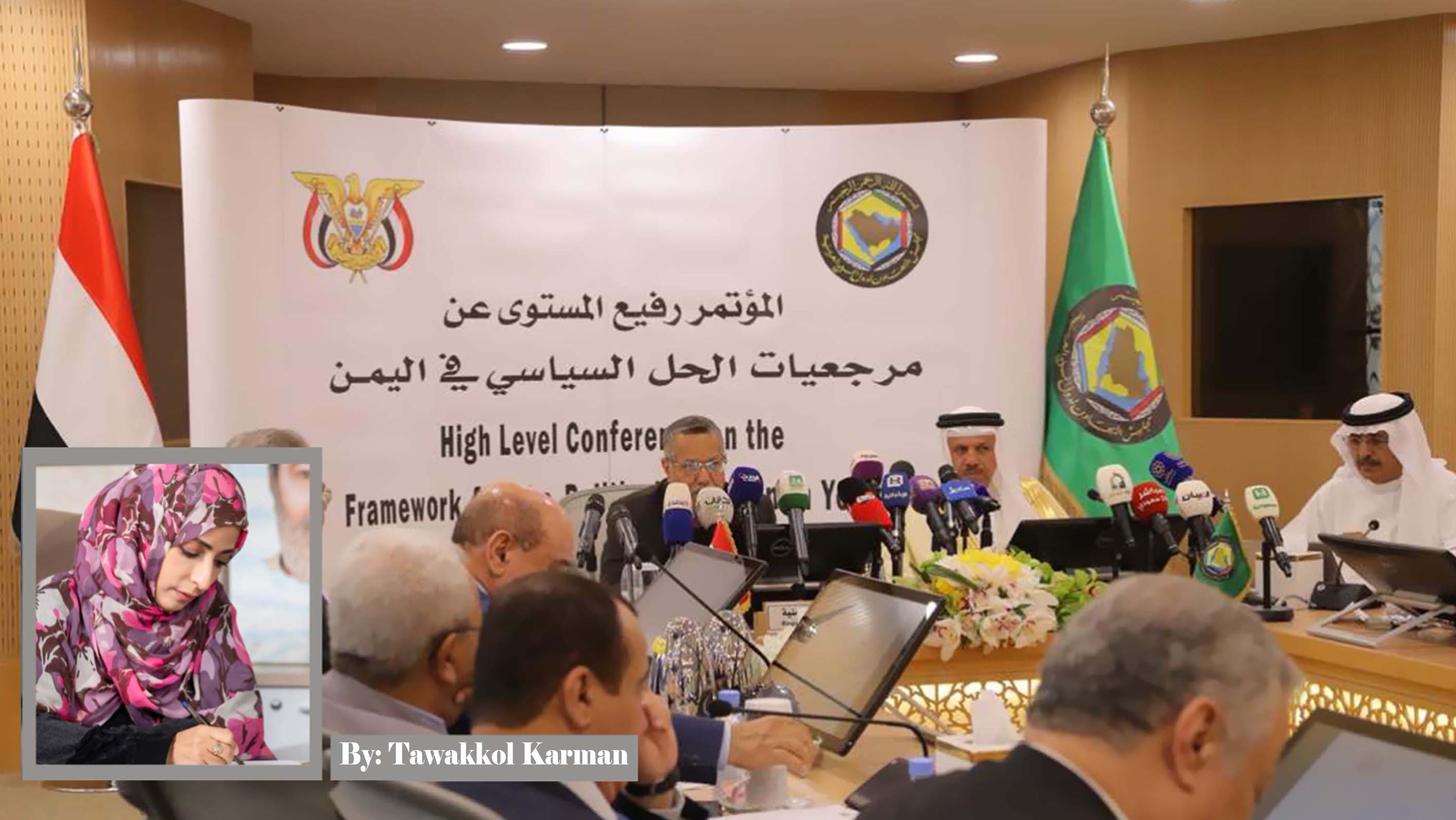Articles

"Three References" Amid Coups' Chaos
Yemen’s Presidential Leadership Council head, Rashad al-Alimi, consistently invokes the so-called “three references” as the sole framework for achieving peace and a political solution with the Houthis—most recently in his remarks during a visit to Russia. Before him, the Saudi-led Arab Coalition repeatedly emphasized the centrality of these references through official statements and media campaigns, though such messaging has no longer been present. One doesn’t need to look far to see that the discourse surrounding the three references has devolved into little more than political rhetoric—detached from the realities on the ground.
At a minimum, half of the eight-member Presidential Leadership Council no longer recognize the so-called three references—not just the Houthis. More critically, these references have been effectively dismantled through a succession of coups. The initial phase began with the Houthi-Saleh coup, while subsequent phases were orchestrated, engineered, and implemented by the Saudi-led coalition—deliberately, knowingly, and with clear intent and prior planning.
It is important to recall that the coalition’s sequence of coups against the agreed-upon references began with the incremental handover of liberated areas to militias specifically created and structured to be fundamentally hostile to President Hadi’s legitimacy—no less so than the Houthi militia, which rejects his authority in the territories under its control.
Equally important is the reminder that President Hadi was barred from returning to Sana’a just as he was barred from returning to Aden. In both cities, he was expelled in the same fashion: through armed, coup-like measures that forcibly removed him, his loyalists, and his forces.
The three references clearly stipulated that President Hadi would remain in office until the completion of the transitional process, placing him at the center of both authority and decision-making. Under the Gulf Initiative and its implementation mechanism, consensus was the guiding principle for governmental and parliamentary decisions. However, in the absence of consensus, the authority to decide reverted solely to President Hadi. A similar provision applied to outcomes of the National Dialogue Conference: if initial consensus failed, and even a three-quarters majority could not be achieved upon reconsideration, the final decision would return to Hadi.
Each of the three references—the Gulf Initiative, the National Dialogue Document, and relevant UN Security Council resolutions—explicitly named Hadi as president and made no provision for replacing him within the transitional phase, except through general elections conducted under a new constitution.
On this basis, it is logically and politically incoherent to claim adherence to the three references while simultaneously endorsing or executing a coup against President Hadi. To attempt both is to engage in transparent political manipulation—rendering the entire framework a farce.
As is well known, the coalition-sponsored and -financed series of field coups across provinces it had declared “liberated” from Houthi control ultimately culminated in the ousting of President Hadi himself. He was replaced by an eight-member council—an act not only of personal humiliation for Hadi, but a profound affront to Yemen’s sovereignty and political dignity. It stands as a historic disgrace, a stain likely to endure for generations.
Yemeni political, party, and social elites—alongside government officials—were summoned to a hotel in Riyadh under the pretense of consultation regarding an unspecified matter. But the reality soon became clear: there was no consultation, no deliberation, and no genuine engagement. Not a single individual was asked for their view, and none met with the decision-makers. Each spent the night isolated in their room—or more aptly, their cell. By morning, they were left to learn of the decision from satellite news broadcasts: President Hadi had been removed, and an eight-member council installed in his place.
Regardless of the true intentions behind this major coup that extinguished Yemeni legitimacy, it goes without saying that this hybrid entity has no foundation in any of the three agreed-upon references. There is no meaningful distinction between it and the political council announced by Saleh and the Houthis in terms of their consistency with, or derivation from, those references. Both councils—the Houthi council and the coalition-backed eight-member council—were appointed through mechanisms that fundamentally contradict the three references in their entirety.
In short: the Houthis and Saleh carried out a single coup against the agreed-upon references, while the coalition has undermined them repeatedly. I am not here to justify or minimize the Houthi-Saleh coup—far from it. It remains the greatest calamity to have struck Yemen, an unprecedented disaster that has left the Yemeni people with no choice but to continue the struggle to bring it down. As I have always maintained, this is, above all, Yemen’s inevitable and sacred task.
Rather, my point is this: the endurance of that catastrophe—this plague upon the country—would not have persisted to this day had it not been followed by the series of counter-coups sponsored and orchestrated by the coalition, which continue to this moment. The Houthis are not as powerful as some may believe, but they remain unified—while the post-Hadi “legitimacy” has fractured into isolated enclaves, marked by infighting and competing agendas. This kind of fragmented authority cannot reclaim a nation, nor can it withstand external threats.
Discussing the references that both the Houthis and the coalition have jointly dismantled does not in any way undermine the Yemeni people's legitimacy in their struggle to reclaim their capital and their state. In truth, the Yemeni people do not need formal frameworks or political charters to justify their resistance to what has become a national calamity. It is a fundamental right—indeed, a duty—for any people living under the boot of armed domination and sectarian tyranny imposed by a fascist dynastic group dragged from the shadows of history to rule by brute force.
Consequently, the Houthi coup will endure for as long as these coalition-backed coups continue. It will persist and expand, ultimately consuming them all. Yet even then, this will not mark the end of Yemen’s story. This nation, renowned for its resilience and unpredictability, has a long history of defying expectations. Without exaggeration, history’s cunning and the Yemeni people’s capacity for surprise spare no one from their reach.
